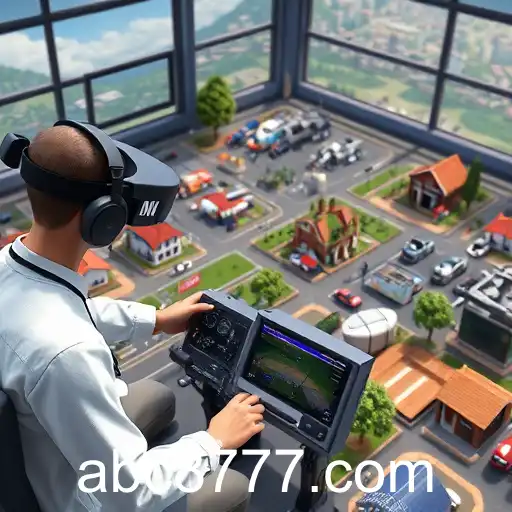Simulation games have carved a unique niche in the gaming industry, offering players the chance to engage with complex, realistic scenarios in a virtual setting. These games are designed to mimic real-world activities and experiences, allowing players to hone their skills, experiment with strategies, and often just enjoy the therapeutic rhythm of everyday activities. With the keyword 'abc8', simulation games can be discovered on various platforms, reflecting their growing demand and popularity.
The essence of simulation games lies in their ability to replicate real-life processes or environments. Whether it's managing a bustling city in a game like 'SimCity', nurturing a farm in 'Stardew Valley', or piloting a plane in 'Microsoft Flight Simulator', these games provide an authentic experience that can be both educational and entertaining. Players are not only enjoying their time but are also learning and developing skills applicable in real-life scenarios.
One of the significant appeals of simulation games is their versatility. They appeal to a wide range of audiences – from children learning about life management skills in 'The Sims' to aviation enthusiasts trying out different aircraft and weather conditions in realistic flight simulators. This broad appeal is why simulation games have remained popular across different age groups and interests.
Furthermore, the impact of simulation games extends beyond recreation. In educational and professional settings, these games serve as effective training tools. For example, medical students use surgical simulators to practice procedures, while urban planning professionals might use city-building games to visualize urban design concepts.
The development of simulation games continues to evolve with technological advancements. The introduction of virtual reality (VR) and augmented reality (AR) technologies into simulation gaming has opened new dimensions for player interactivity and immersion. These technologies have brought games closer to reality than ever before, providing users with sensory experiences that deepen the level of engagement.
In conclusion, simulation games represent a fascinating convergence of technology, creativity, and skill development. They are a playground for experimentation and learning, offering a breadth of experiences that cater to various interests and professional needs. As they continue to evolve, these games are set to expand their influence in both the gaming industry and educational sectors.

This article delves into the immersive and diverse realm of simulation games, highlighting their impact on entertainment and education.




